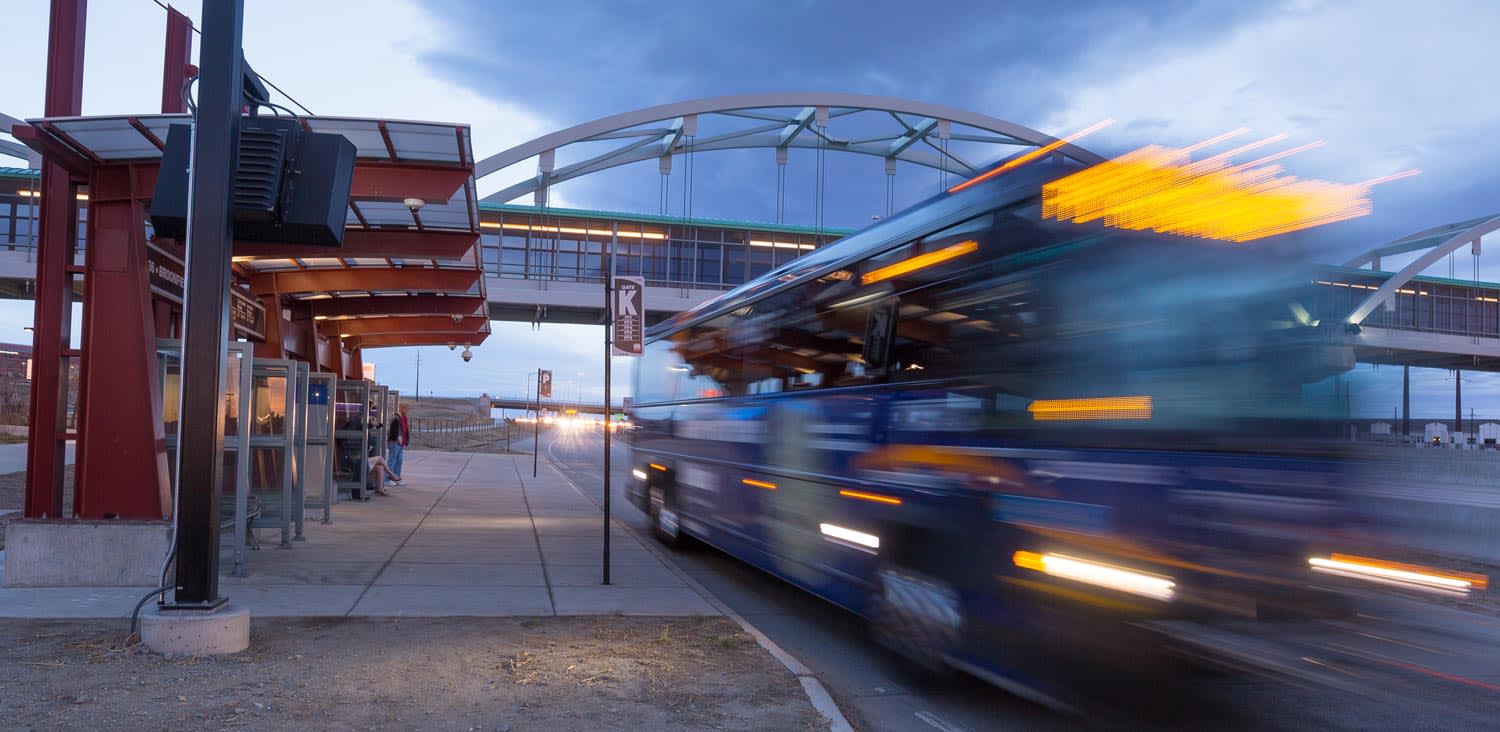
Regional Bus Rapid Transit Feasibility Study
The Regional BRT Feasibility Study evaluated future corridors within the RTD service area through a data-driven tiered evaluation process. At the conclusion of the study, three to five corridors were identified for future bus rapid transit investment.
Project Overview
February 2018 - June 2019
As the metro area becomes more congested, RTD has partnered with the Colorado Department of Transportation (CDOT) and the Denver Regional Council of Governments (DRCOG) to conduct the Regional Bus Rapid Transit Feasibility Study. The study will explore opportunities to implement bus rapid transit service throughout the region to address growing travel demand and support current and future RTD FasTracks projects. The study will identify and prioritize BRT projects based on analysis of ridership demands, transit operational needs, corridor feasibility, cost and benefit considerations.
Bus rapid transit (BRT) service is high-frequency bus service that emulates rail transit, and provides fast and reliable service on a dedicated route. For the purpose of the study, BRT service will be consistent with the Federal Transit Administration (FTA) definition to ensure eligibility for future grant opportunities. Common characteristics include:
- Fixed guideway: Transit service where the majority of the route’s length operates in a separate transit-only lane or fixed guideway during peak service periods.
- Defined stations: Stations that are accessible for persons with disabilities, offer shelter from weather and provide information on schedules and routes.
- Fast travel times: The route must provide faster travel times through congested intersections by using active signal priority for transit vehicles or queue-jump lanes to move transit vehicles ahead of queuing traffic.
- Branding: The route has a consistent brand that identifies the stations and transit vehicles.
The study will be conducted over an 18-month period, starting in February 2018 and was completed in 2019.
Evaluation of Potential BRT Corridors
Principles
A set of evaluation principles were developed to guide the evaluation of the corridors. The evaluation principles will ensure that the outcomes of the analysis align with the needs and vision of the region.
Corridor evaluation principles:
- Provides connectivity and access
- Increases ridership
- Enhances expandability, equity and sustainability
- Ensures cost effectiveness
- Aligns with state and local agency recommendations
- Considers technological innovation/smart cities
- Adheres to FAST Act BRT definition
- Integrates engineering/operation feasibility and safety
- Acknowledges potential environmental impacts
- Capitalizes on financial resources
Utilizing the evaluation principles, a 4-tiered evaluation process will be used to evaluate all potential BRT corridors. The 4-tiered evaluation process will begin by identifying possible candidate corridors or potential corridors for BRT throughout the Denver metro area and will result in the top 3 to 5 priority corridors for future BRT.